Let’s Get Real About Study Abroad: It’s Hard, and that’s Exactly Why You Should Do It
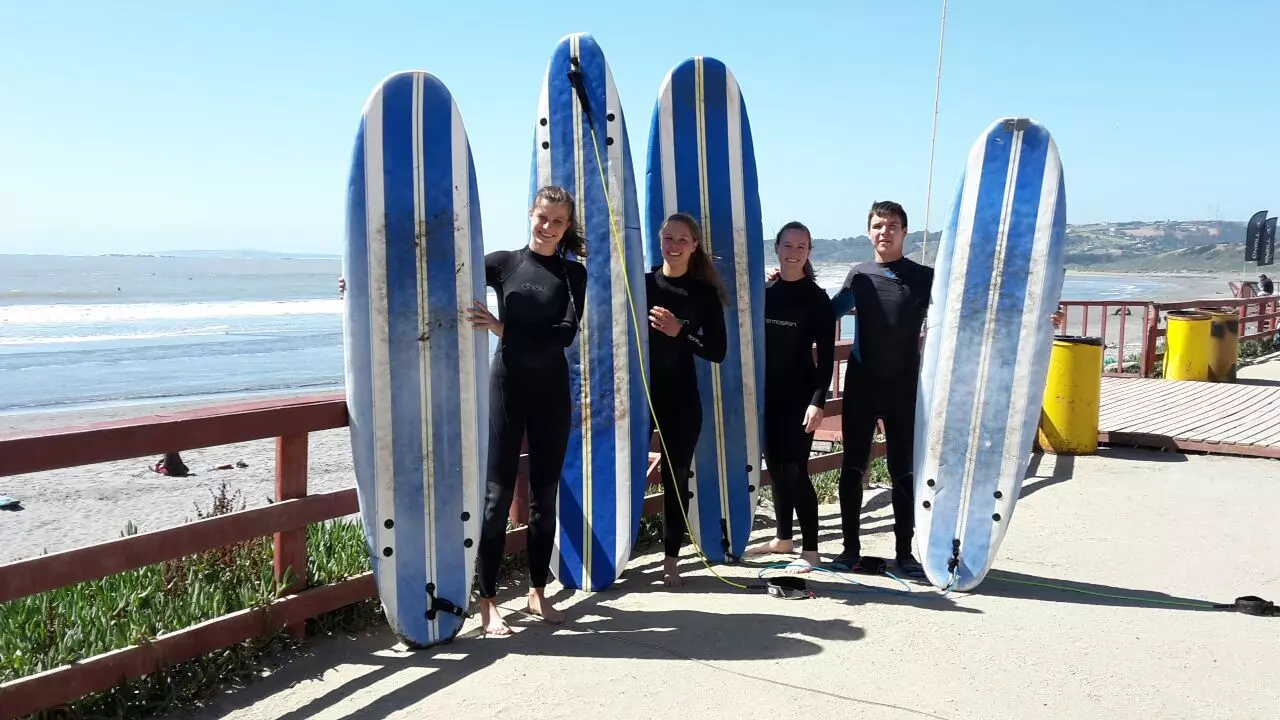

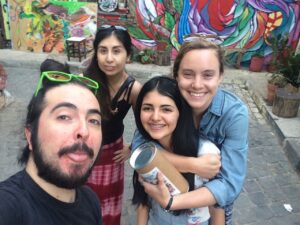
When people ask me how my semester abroad was, they are sometimes shocked that I don’t immediately respond with, “Amazing!” or, “Incredible!” or, “The best five months of my life!” Most of them are family members or friends who haven’t studied abroad before, so they have the same idealistic image of study abroad that I used to have: that you get so used to being there that you can’t imagine living anywhere else, and when you finally leave, all you ever dream about is going back forever.
But that’s not how it always is, and not how it was for me.
For me, studying abroad was hard.
That’s not to say that I didn’t have adventures or make friends, or that I don’t miss Chile now I’m home. I did, and I do, but the five months I spent in Valparaíso were also some of the most challenging in my life. And though it was hard for me, I grew so much more as a person than I would have if I had stayed home. I learned a lot about myself, about how to travel alone and navigate unfamiliar territory, and about placing value on the things that really matter to me. Here’s why:
1. I was homesick. A lot.
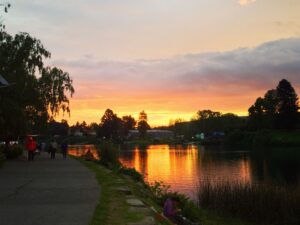
I cried myself to sleep for about a week when I moved in with my host family. I called my parents and my boyfriend every night to talk for hours, because I couldn’t handle being in an unfamiliar place with unfamiliar people. Although my host family consisted of some of the sweetest, most caring people I’ve ever met, it was hard for me to consider them as truly my family. Even after that first week, I experienced frequent bouts of homesickness throughout the entire semester. I missed my family, my friends, and the sense of belonging I felt at home and at my college in the U.S.
The more I travelled around Chile though, the more I began to think of Valparaíso as home. I would come back from trips to see familiar streets, familiar buildings, and familiar buses. My host family would welcome me into our familiar apartment and we would sit down to eat dinner together and talk about my adventures. By the time the day came to say goodbye at the end of the semester, the thought of leaving my host family for who knows how long filled me with sadness.
2. I never quite fit in.
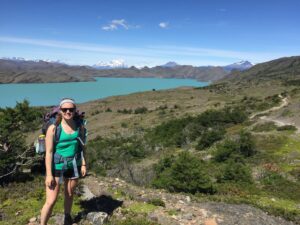
One of the toughest realizations for me to come to terms with during my semester abroad was that no matter how well I could navigate the city or how well I spoke Spanish, I would always be a gringa. I would always be stared at everywhere I went because of my blonde hair and blue eyes. I would always be judged immediately as an outsider, no matter what I did to try and fit in, because I simply didn’t belong there. While walking to school or running along the boardwalk, I felt the constant stares boring into me from all sides, which made me extremely self-conscious and reluctant to look at or speak to anyone unless absolutely necessary.
This struggle with my appearance and identity also taught me valuable lessons about difference and acceptance. My experience as a physical and cultural outsider in Chile helped me to better understand how people who identify as racial or ethnic minorities in the U.S. may feel judged or treated as outsiders because of their outward appearances. As a white woman in the U.S., I live with the privilege of being part of the American “standard.” As a white woman in Chile, I got a brief taste of what it’s like to live without that privilege, which made me much more aware of the impact being an “other” can have on a person’s day to day life.
3. I was a grandma.
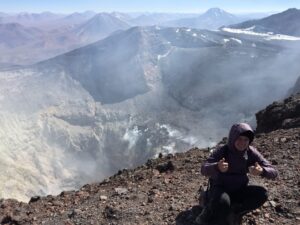
One aspect of culture shock I thought I was prepared for was the way Chileans spend their weekends. I knew it was common to stay out very late and to have some drinks, but even knowing that ahead of time didn’t prepare me for how it felt to participate in that part of Chilean culture. At my small college in the U.S., parties are typically pretty low-key, and are usually confined to the dorms and houses around campus. Valparaíso’s nightlife lives in bars and clubs, which don’t even begin to fill up until midnight. This unfamiliar atmosphere combined with the unwanted attention I often received from men at clubs, made me very uncomfortable with going out, to the point where I just wouldn’t go anymore. This decision earned me the nickname “Abuelivia” (a combination of ‘abuela,’ meaning ‘grandma,’ and my name, Olivia) from my host brother and friends.
At first I felt like I had to prove them wrong, to prove that I was a fun, cool college student who could hang with the Chileans their way. But I soon learned that I simply didn’t enjoy staying out even until 2 or 3am (it’s normal in Valpo to stay out until at least 5 or 6am). So I learned to embrace my nickname and make time for what I wanted to do on the weekends. Sometimes it was going out to a bar with my friends, but it might also be staying in to read or watch Netflix, or spending the weekend travelling to different parts of the country. Two of my favorite weekend memories were of last-minute plans I made to go somewhere I’d been wanting to go by myself, and that gave me a sense of empowerment.
While I dealt with many challenges and obstacles during my semester abroad, I will appreciate and remember my time in Chile for the rest of my life. I learned so much about Spanish and Chile and Latin America, but also about myself and how I want to live my life for me and the people I love. My host family, especially, are people I will always remember and cherish as some of the most kind, thoughtful, and loving people I have ever met. Though I experienced plenty of lows, there were just as many—if not more—highs that made my semester abroad the fantastic challenge that it was. No matter how I felt during some of those tougher days, I know looking back that my time spent abroad is something I will cherish for the rest of my life.
Olivia Berlin was an English and Creative Writing major at Colorado College, and studied abroad with IFSA through the Chilean Universities Program, Valparaiso in the fall of 2016.